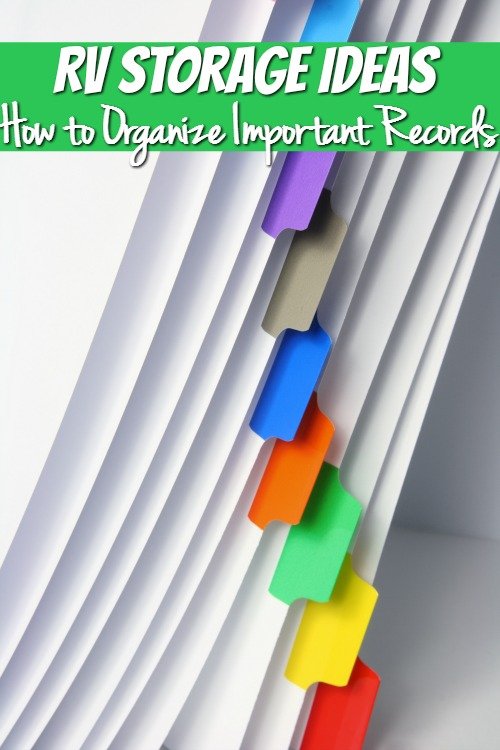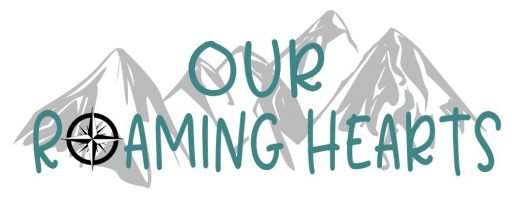Living life as a full time recreational vehicle (RV) traveler is an incredible experience. Children get to see and experience things that make the lifestyle, and its challenges, ultimately worth it. One of those challenges is trying to keep clutter to a minimum and practice contained organization of the small amount of stuff we do keep with us.

Full Time RV Storage Ideas – How to Organize Important Records
It’s a constant battle against chaos, because a small living space means that we have to be very selective about what we let into our lives. Living small also forces us to spend a good amount of time outdoors and in nature as well – so it also has its positives!
Because we live our life on the road, we make sure to have copies of things like vaccination records, dental X-rays, medical treatment histories, and identity documents within hands reach. Often if a child is sick or injured we end up utilizing an urgent care clinic, convenience clinic at a local retail store, or (but not if we can avoid it) a nearby emergency room.
In these kinds of situations, it’s often impossible to have our previous doctors and other healthcare providers forward information quickly. Instead, have copies of these things on-hand for quick access as needed. Easily retrievable cloud-based health record storage systems like CareCloud and Practice Fusion are one solution; unfortunately, not all health care providers have adopted these types of systems.
Here are three ways to organizing health records, identity documents, and other paper clutter.
Page protectors and labels
The easiest solution I’ve found is to use a three ring binder with page protectors, page dividers, and labels, to group important documents for each family member and according to type. Each member of the family has their own page-protected “envelope” in which to store their documents for each type of document (e.g., school records and report cards, dental records, medical records, etc.) I’ve labeled each section and also the page protectors themselves to ensure they always get put back in the right place when we’re done using them.
Scanning for digital storage
For paper documents that you need or want to hold onto, but that don’t need to be immediately accessible, consider scanning them and saving the jpeg or PDF images on a USB or hard drive for quick and easy access should the need arise. This is also a perfect chore for pre-teens as well and teaches them grown-up responsibilities while delegating administrative tasks. At most it takes about 30 minutes a month in a busy month to get everything scanned and saved – but puts the info. Right at your fingertips for quick retrieval if needed.
If it seems like too much effort to get started, you may want to read over these tips or consider hiring a bulk scanning service to get you up to speed.
Fireproof safe
The most important thing to invest in no matter where you’re living is a fireproof safe. Keep originals of all documents in it for security. You can also store small irreplaceable heirlooms or important family photos. Not only will this keep your most crucial documents from harm in case of the unthinkable, but it will make the reconstruction and rebuilding process after a disaster easier as well. Consider keeping two sets of hard copies: one in a three-ring binder for quick retrieval, and another set of copies and the originals in the fire-proof safe.
Before you sell everything to head out on the road, I encourage you to read more about the road schooling life to make an informed decision. Things do change when you become a full-time RVer. Everything from celebrating birthdays to home security becomes a challenge to solve. However, there are ways to test the lifestyle before you commit. Try renting an RV for a family vacation before buying a pre-loved RV or even a brand spanking new one right off the lot.
Like any drastic lifestyle choice, it’s not for everyone. Through scaling down our possessions, streamlining processes, and eliminating paper clutter we’ve learned to spend less time focusing on our stuff and more time valuing what’s most important to us: family connection and experiences.
This article was generously contributed by James Smith. James Smith is an adventurist, and he loves to write about different adventurist sites.
